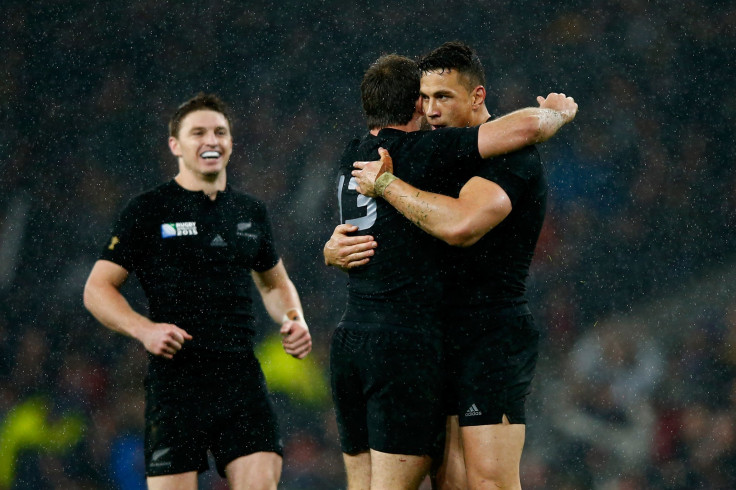Rugby World Cup Final 2015: Why New Zealand Will Beat Australia To Lift The Trophy

New Zealand will start as favorites to beat Australia in Saturday’s 2015 Rugby World Cup final at London’s Twickenham Stadium, and with plenty of justification. For six years they have sat atop the World Rugby rankings, with a squad many have dubbed the most talented in the sport’s history. Now they are just one victory away from becoming the first team in history to retain the World Cup.
It was their victory in 2011 that proved the defining moment for this generation of All Blacks. Despite more often than not being regarded as the most talented team, ever since winning the first ever World Cup in 1987, New Zealand had built a significant resume of failing to deliver on that ability when it truly mattered. In 2007 came the biggest shock of all, when an upset by an unheralded France team in the quarterfinals.
But four years later, with all the pressure that comes from attempting to deliver the trophy on home soil, and against their former tormentors France to boot, New Zealand held on under pressure to win 8-7 in the final.
That, though, was not the end of the All Blacks’ journey. It has generally been the case that winning the Rugby World Cup represents a team’s peak, preceding a downward slide and a need for regeneration. Indeed, New Zealand are just the second team to have made it back to the final as holders, and the first country to do it, England, were barely clinging onto former glories when doing so in 2007.
New Zealand have bucked the trend by going from strength to strength. In 53 Tests since beating France in Auckland, the All Blacks have lost on just three occasions. Crucially, they have shed any perceived “chokers” tag in 2015. In this World Cup they were confronted with France again in the quarterfinals, but blew them away, 62-13. Then came a very different test of their credentials against a country, in South Africa, that have often been their bogey side.
New Zealand duly struggled to produce their sparkling brand of rugby, even trailing by five points and with a man in the sin bin at halftime. Yet they found another way to win, grinding out a nail-biting 20-18 win off the back of Dan Carter’s kicking. In back-to-back matches, New Zealand showed that they are capable of both blowing opponents away through brilliance from the likes of Julian Savea, who has already equaled the record of eight tries in a World Cup, as well as defending stoically and playing pragmatically. And at the center of it all is captain Richie McCaw, who will be playing his last ever match for New Zealand in the final.
The game will also be the last hurrah for Carter, the record points scorer in the history of international rugby, and Kevin Mealamu. All will be desperate to ensure the final act of their remarkable All Blacks careers are not ones that bring years of subsequent regret.
Their nervy semifinal win should help in that regard, making New Zealand battle hardened and removing any sense of complacency. Yet, crucially they should be fresher, too. The duel with South Africa was the only severe test they have faced since an opening win over Argentina. Australia, meanwhile, have been involved in punishing duels in each of their last four matches, against Argentina, Scotland, Wales and England. And the Wallabies unsurprisingly have key fitness concerns. The reasons are plentiful to believe that this is New Zealand’s time to make rugby history.
© Copyright IBTimes 2025. All rights reserved.





















